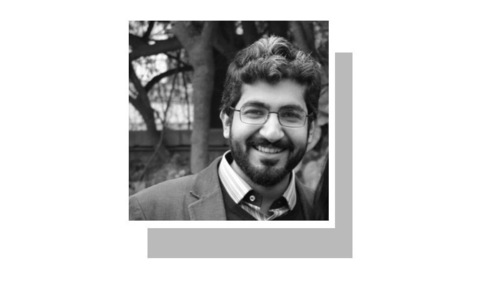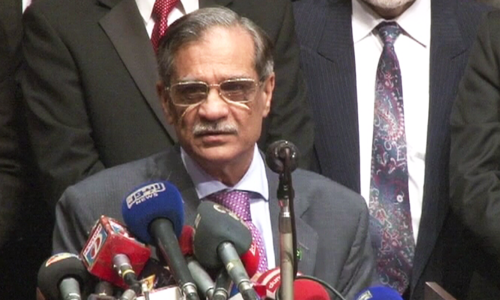ISLAMABAD: While supporting the cap on school fee increase declared by the Supreme Court, a parents’ representative on Tuesday termed it ‘antithesis of unjust enrichment’ and ‘furtherance of the ethos of Constitution’ aimed at larger public good.
Read: SC orders 20pc reduction in private school fees over Rs5,000
However, Umair Ahmed, who was allowed by a three-judge Supreme Court bench headed by Chief Justice Asif Saeed Khosa to advance his point of view in the school fee case, contended that the capping on the annual fee increase by not more than five per cent for three years must be implemented across the board.
He narrated how the children of a parent were harassed and detained for six hours by a school system only because their mother was seeking implementation of the SC directives in the school fee case.
The SC was hearing a set of cases pertaining to fee increase by private educational institutions.
Active participation of parents in govt’s regulatory framework sought
Mr Ahmed said the private schools must adhere to the principles of fairness in raising their tuition fee within the capping limits and must also justify any fee increase, whereas the government was under a legal obligation to oversee and regulate these schools. He said parents must also be taken into confidence through active participation in the government’s regulatory framework.
He also urged the apex court to order the government to ensure impartial, fair and transparent fee audit of private schools either by financial accountants of the government or third party audit firms annually.
When Mr Ahmed requested the court to stop private schools from charging extra fees in the name of bake sales, class parties, farewell, sports day, club fee and parents’ day functions at high rates, which are made mandatory by most private schools, Chief Justice Khosa observed that the SC could not go into individual grievances and, therefore, he should exhaust his grievance before the available avenues first.
“Don’t drag us into resolving the issues which are not before us,” he remarked.
Justice Ijaz-ul-Ahsan, a member of the bench, said the court was seized only with the constitutionality of the laws framed by the government and that he should approach the regulators for the redressal of the grievance and fulfilment of their demands.
Mr Ahmed also wanted a check on the promotion of western culture and poor discipline in schools leading to drug use and other issues. At this, the chief justice observed that he could get his children out of their school if he had such objections.
The chief justice, however, observed that the Supreme Court was trying to take care of the interest of parents as well as the legality of the law as parents were a major stakeholder in the matter.
Justice Ahsan said the SC was the court of everyone and would decide the matter through a balance decision while keeping in mind the interest of everybody. He was of the opinion that events such as school trips were optional but peer pressure pushed the parents to pay additional amount.
During the hearing, the chief justice also deplored that all those sitting in the courtroom knew very well that the private schools in addition to fee asked parents to buy course books and uniforms from certain outlets with no check on their rates.
If one branch of a particular school is running in a loss, the schools make up manifold from other branches, the chief justice observed, adding that an auditor’s report compiled on the directives of the apex court had revealed that certain schools earned billions of rupees as profits.
Justice Ahsan also recalled how many schools had turned into universities.
Representing different private schools, senior counsel Makhdoom Ahmed Ali highlighted that the inflation rate from 2010 to 2012 was at 7.7 per cent while it later increased to 11.40pc.
It had become very difficult to find good teachers of mathematics, English and Urdu to teach at private schools, the counsel argued, adding that tuition centres were prospering in urban areas as what they offered to the teachers could not be afforded by private schools.
The counsel also highlighted that the Dec 16, 2014 terrorist attack on the Army Public School in Peshawar had increased the cost of security of schools. He said that this was the point of their fight with the Sindh government that was not allowing the private schools to increase fee by more than five per cent per annum irrespective of the facilities the schools offered.
Justice Ahsan wondered if the court could strike down a law simply because it had become difficult to run a business. In case such a decision was rendered, the next day textile mills or steel mills or other industry would come to the SC against a particular law, the judge observed.
Published in Dawn, May 8th, 2019















































